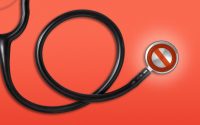Study demonstrates the success rate of gene analysis using cytological specimens to be extremely high
Personalized medicine for lung cancer using molecular-targeted drugs is common but there have been no prospective validation studies done on the usefulness of lung cancer gene panel testing using cytology samples.
However, researchers lead by Kei Morikawa, St. Marianna University School of Medicine, Japan today reported data that the success rate of gene analysis using cytological specimens was extremely high, and the yield and quality of the extracted nucleic acid were also sufficient for panel analysis. The research was reported today at the IASLC 2022 World Conference on Lung Cancer in Vienna.
Current gene panel tests require enough tissue sample, but there are many instances where panel tests cannot be performed, according to Dr. Morikawa. To address this, Dr. Morikawa and colleagues evaluated the feasibility of performing gene panel tests using cytological specimens including transbronchial brushing, transbronchial needle aspiration, and pleural effusion in clinical practice. Using an amplicon-based high-sensitivity next generation sequencing panel test capable of measuring eight druggable genes (EGFR, BRAF, KRAS, ERBB2, ALK, ROS1, MET, RET), Dr. Morikawa prospectively enrolled consecutive patients who underwent diagnostic procedures from May 2020 to January 2022.
Nucleic acid extraction and analysis were successful in 163 (100%) of the 163 prospective cases (Ad 153, Ad + Sq 1 and NOS 9); 111 cases (68.1%) had gene mutation, including 58 cases (35.6%) of EGFR, 25 cases (15.3%) of KRAS, 9 cases (5.5%) of MET Ex14 skipping, 6 cases (3.7%) of ALK fusion, 6 cases (3.7%) of BRAF, 4 cases (2.5%) of ERBB2, 2 cases (1.2%) of ROS1 fusion and 1 case (0.6%) of RET fusion.
The median DNA / RNA yield and DIN / RIN were 720ng, 481ng, 7.6, and 6.2, respectively, which were sufficiently applicable to the gene panel analysis. The correlation coefficient of the gene allele ratio in 61 cases compared with the tissue sample was 0.717, showing a high correlation.
The success rate of gene analysis using cytological specimens was extremely high, and the yield and quality of the extracted nucleic acid were also sufficient for panel analysis. Moreover, the allele frequency of gene mutations in cytological specimens showed a correlation with tissue specimens."
Dr. Kei Morikawa, St. Marianna University School of Medicine, Japan
International Association for the Study of Lung Cancer
Posted in: Genomics | Histology & Microscopy
Tags: Allele, Cancer, Clinical Trial, Cytology, Diagnostic, DNA, Drugs, Frequency, Gene, Genes, Lung Cancer, Medicine, Mutation, Next Generation, Nucleic Acid, Research, RNA
Source: Read Full Article


